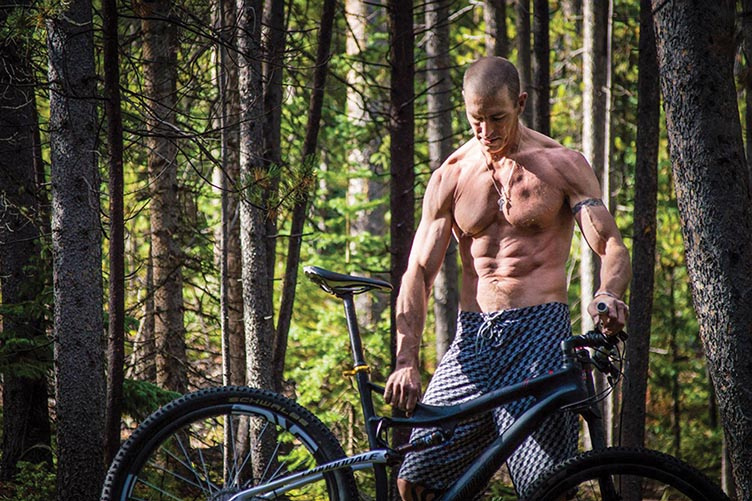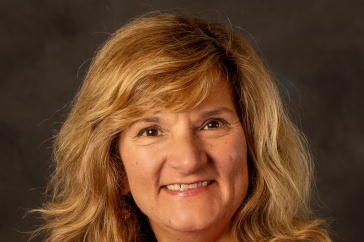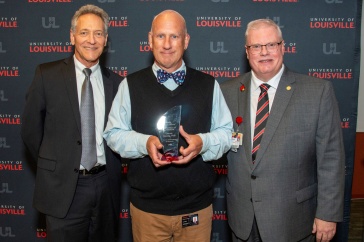
Courtesy photo
It’s 6 a.m. but Patrick J. Sweeney ’89 is awake and ready to go. Speaking from Colorado, where he’s training for his eighth Leadville 100 — a 100-mile mountain bike race through the Rocky Mountains — between sips of coffee, Sweeney recounts his transformation from insecure teen to elite athlete, then tech entrepreneur to extreme adventurer.
His motivation? Fear.
“People can use fear as fuel to propel them through their challenges, whether it’s at work or out in the world,” he says. “My mission is to teach people courage.”
It’s difficult to imagine that Sweeney, amiable and confident, has ever been afraid of anything. The son of Irish immigrants, he grew up in Belmont, Massachusetts, in a family with little money. “I was afraid of everything — rejection, abandonment,” he says. “I coped by playing sports. I thought it would give me significance.” Sweeney arrived at UNH as a successful high school Nordic skier, but he struggled to make the college team. UNH crew coaches Lawrence Smith and Chris Allsopp convinced him he was better suited to rowing, and they were right: competing for UNH, he won the Jefferson Dad Vail Regatta, the largest collegiate race in the country, in a four-man boat, went on to compete for the U.S. in the World Cup, and participated in two Olympic trials in the single scull, finishing 14th in 1992 and 2nd in 1996.
But athletic accomplishments weren’t enough. After receiving an MBA from the University of Virginia, Sweeney went on to found three technology companies. He had just started his second when he was diagnosed with a rare form of leukemia at age 35. “The doctor asked if my affairs were in order,” he remembers. “It was a wakeup call.”
Sweeney was accustomed to fighting, but after he conquered his illness, he wanted to do more. He believed the fear that drove him most of his life had pushed him to an unhealthy edge. “When I was sick, I met people who defined themselves by their diseases,” he says. “I wanted to thrive, not just survive.” Instead of avoiding his feelings around fear, he wanted to understand them, confront them, and use them to his advantage.

Recognizing, and capitalizing on, our fear response can help us reach our highest potential in whatever we want to achieve, Sweeney believes. The physical and mental changes that happen when our amygdala — the part of the brain that controls reactions to potentially threatening situations — is activated are like a high-octane boost. “You have the world’s most power-enhancing drug coursing through your body,” he says. “You can either run or use it to your advantage and really change things in your life.”
Sweeney follows his own advice. Eschewing a return to the corporate world in the wake of his successful cancer treatment, he’s now a full-time adventurer. Once afraid of flying, he earned his commercial pilot’s license and now competes in acrobatics. He founded ODIN Air Productions, producing outdoor and adventure documentaries, and is the first person to attempt cycling the Seven Summits, the highest peaks on each of the seven continents. This summer, Sweeney’s four-person cycling team, Fat Chance, won the open-mixed division of the grueling 3,029-mile Race Across America from Oceanside, California, to Annapolis, Maryland. Sweeney is also a sought-after speaker, working with companies like Google, eBay and Intel to help employees tap into their courage and entrepreneurship. Through his Fear Institute, he works with CEOs and executive teams to generate breakthroughs. He’s also working on a television series about his adventures, and his book, “Fear as Fuel,” about the psychology behind fear and how to use it constructively, comes out in January 2019.
Advising people to “scare themselves at least once a week,” Sweeney believes that courage is the ultimate solution to many social problems. “One of my favorite quotes is by Gandhi: ‘The enemy is fear. We think it is hate, but it is really fear,’” Sweeney says. “When you learn how to deal with fear, your life changes. I can’t think of a better way to transform the world.”
-
Written By:
Debbie Kane | Freelance Writer


















































